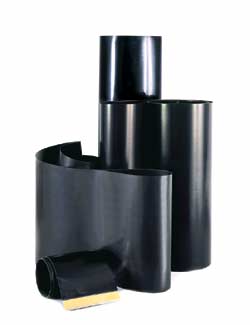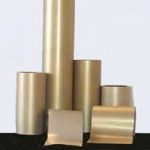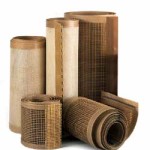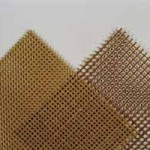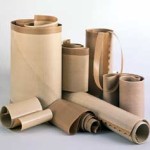Description
DuraFab® Anti Static PTFE (24 Series)
DuraFab® Anti-Static belts are specially formulated to dissipate surface static build-up during operation. These belts are black in color, are manufactured from woven fiberglass substrates, have an optimum PTFE (Fluon®) content and a proprietary additive. The Anti-Static Belts have the highest thermal conductivity (best heat transfer) of any of the DuraFab® products and is best used in applications where surface static dissipation is desired such as, garment fusing and fabric lamination applications. | ||||||||||||||||||||||||||||||||||||||||||||||||||||||||||||||||||||||||||||||||||
DuraFab® PTFE Coated Belt Characteristics | ||||||||||||||||||||||||||||||||||||||||||||||||||||||||||||||||||||||||||||||||||
DuraFab® Belts are engineered to retain the distinctive properties of PTFE; however, by adding a glass fabric to the matrix, AFC is able to obtain the added benefits of dimensional stability, excellent tensile strength and extremely low elongation (<1%). DuraFab® Belts have received USDA approval for food processing and handling, and are FDA compliant (21 CFR177.1550). In addition, the DuraFab® belts can operate in temperatures from -400°F (-240°C) under static conditions and -100°F (-73°C) under dynamic conditions up to 550°F (288°C). | ||||||||||||||||||||||||||||||||||||||||||||||||||||||||||||||||||||||||||||||||||
Typical Applications | ||||||||||||||||||||||||||||||||||||||||||||||||||||||||||||||||||||||||||||||||||
Packaging:
Food Products:
Printing and Textiles:
Pulp and Paper:
| Polymer Processing:
Building Products:
Chemical Processing:
Other:
Additional applications exist. Contact AFC for more specific information.
| |||||||||||||||||||||||||||||||||||||||||||||||||||||||||||||||||||||||||||||||||
Styles Available | ||||||||||||||||||||||||||||||||||||||||||||||||||||||||||||||||||||||||||||||||||
| ||||||||||||||||||||||||||||||||||||||||||||||||||||||||||||||||||||||||||||||||||
Please note: Additional thickness and styles available upon special order and lead times may vary for different styles and widths. *Disclaimer: All figures provided in the above table are based upon ASTM D 4969-97, the Standard Specification for Polytetrafluoroethylene (PTFE) Coated Glass Fabric. The above PIW values are based upon the ASTM D828 test method and are not actual values of AFC’s materials. The above tensile values are 80% of the figures provided in Table 6 of specification D579. AFC states that its actual tensile will be greater than the above material specification and that actual tensile values will be provided upon request. Edge Tear values are based upon ASTM D1424 (Elmendorf Tearing Test) and are average values that can vary. | ||||||||||||||||||||||||||||||||||||||||||||||||||||||||||||||||||||||||||||||||||


